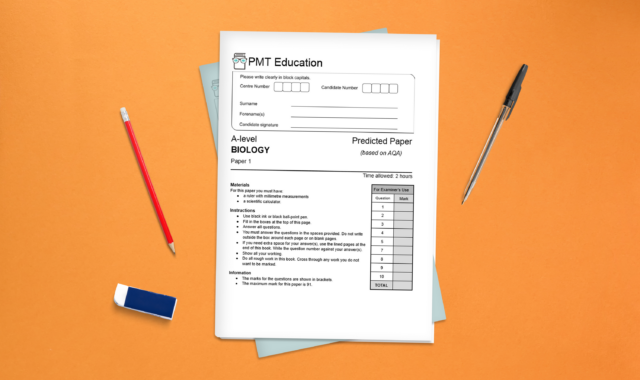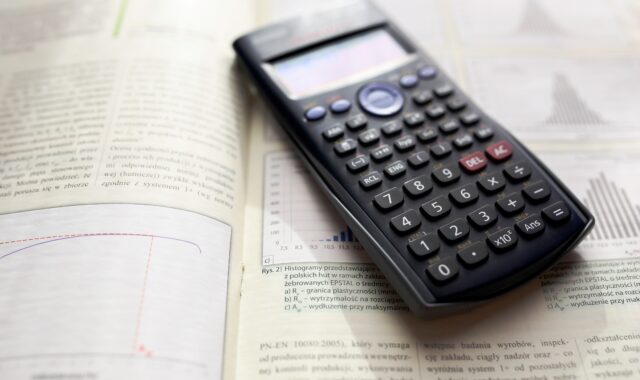Contents:
If you’re in Year 11 or Year 13, chances are, you’ve recently emerged from an intense period of mock exams. First and foremost, well done on successfully navigating these assessments! Mock exams are no easy feat, so you should be proud of yourself for getting through them.
However, before you push mock exams to the back of your mind, it’s crucial to take some time to reflect on your results. By analysing your performance, you can identify your strengths, pinpoint your weaknesses, and develop a plan for success in your final exams.
In this article, we’ll explore the importance of reflection and offer practical strategies for GCSE and A Level students to make the most of their mock exam results.
Embrace a positive mindset
Approach the process of reflecting on your mock exam results with a positive mindset. Remember that your results are not a final judgement but a snapshot of your current knowledge and understanding. If you’re disappointed with your results, try to view them as an opportunity for growth and improvement rather than a setback.
Molly’s top tip!
If you didn’t perform as well as you expected in your mock exams, all is not lost. You still have plenty of time to refine your study routine or even devise a completely new one. Remember that mock exams are just a practice run. When I was in school, many students who performed poorly in their mocks ended up doing exceptionally well in the final exams. So, don’t give up now! Keep going and take advantage of this opportunity to improve!
Review your mock exam papers
Set aside time to thoroughly review each of your mock exam papers. While you may do this as a class exercise in school, it is also worth revisiting independently.
This process isn’t just about counting the number of correct and incorrect answers; it’s about examining the reasoning behind your responses and gaining an understanding of why you were awarded marks for some answers but not for others. The mark scheme provides a structured guide for understanding the expectations of each question, so make sure to request a copy from your teacher!

Begin by evaluating your strengths. Which topics and question types did you perform best in? On the flip side, take note of any patterns in your mistakes, as well as the types of questions that you found challenging. Did you struggle with…
- Fundamental knowledge – Did you simply lack knowledge and understanding of core concepts?
- Application of knowledge – Did you struggle to practically apply your knowledge to solve problems?
- Misreading questions – In the high-pressure environment of an exam hall, it is not uncommon for students to misread questions.
- Misinterpreting questions – Did you often misinterpret questions, leading to incorrect responses?
- Making maths errors – Did you particularly struggle with the mathematical components of your exam paper?
- Making careless mistakes – Were careless errors a recurring issue in your exams?
- Not showing calculations – In subjects like maths and science, marks may not be awarded to students who show no working.
- Not providing evidence – In subjects like history or psychology, accurate sourcing of dates, names, and case studies is crucial.
- Time management – Did you run out of time?
You could tally up the frequency of each mistake to identify recurring patterns. This analysis will help you pinpoint specific topics or skills that require more attention.
Talk to your teachers
Have a chat with your teachers to discuss your mock exam results and clear up any uncertainties you may have regarding your paper. Teachers often dedicate a lesson to reviewing common challenges faced by students in the mock exams. Your teachers will have valuable insights into the exam content and marking criteria, so take full advantage of this opportunity by asking lots of questions. You could ask them to walk you through the marking process and provide feedback on specific sections where you may need clarification.

If you’re particularly concerned about your mock exam results or hesitant to ask specific questions about your paper in front of your class, ask your teacher if they would be willing to set aside some time to talk to you privately. You could arrange to meet them after the lesson, during break, at lunchtime, or before or after school. They may be able to offer you personalised guidance on how to improve your performance moving forward. Organising one-on-one discussions with your teachers might initially seem daunting, but it’s important to remember that they are there to support you!
Create an action plan
Based on your analysis of your mock exam papers, as well as teacher feedback, create an action plan to address areas of improvement, refine your exam technique, and position yourself for success in the real exams.
Set specific goals
Establish clear and achievable goals based on identified areas of weakness. This could be mastering a specific concept, improving your problem-solving skills, or perfecting your exam technique.
Prioritise weak areas
Ensure your revision is targeted and efficient by prioritising subjects or topics that posed the greatest challenge during your mock exams. While it may be tempting to focus on the easiest topics and leave the weaker areas until the end of your revision, it’s important to tackle challenges earlier on. This will give you time to address any gaps in your understanding and seek advice from your teachers.
Diversify revision methods
If your performance in your mock exams suffered because you lacked a solid grasp of the content, it might be time to switch up your revision strategy.

There are lots of different revision techniques available, including flashcards, mind maps, blurting, teaching others, and mnemonics. Experiment and figure out which ones work best for you! Using a combination of several techniques will keep your study routine engaging and likely give you the best results. Ensure you use active revision strategies rather than passive re-reading or highlighting.
You can find summary notes, flashcards, mind maps, and other revision materials for a range of GCSE and A Level subjects on Physics & Maths Tutor.
Create a revision timetable
If you struggled to cover all the content before your mock exams, consider creating a revision timetable in preparation for the actual exams. A well-organised revision timetable provides structure, ensuring you have sufficient time to cover all the necessary topics. For guidance on creating the perfect revision timetable, check out our article on How to make a revision timetable you’ll actually use!
Practise past papers
If you faced difficulties while answering applied knowledge questions in your mock exams or found it hard to identify the demands of different question types such as ‘state’, ‘explain’, and ‘evaluate’, then practising exam questions from previous years can be very helpful in refining your exam technique. You’ll become more familiar with the exam format and structure, and start noticing patterns in the types of questions that appear frequently.
Physics & Maths Tutor provides exam questions conveniently organised by topic, as well as a library of past exam papers and mark schemes! If you find yourself struggling with a specific question, the platform also offers helpful model answers and video solutions to aid your understanding.
Make use of mark schemes and examiner’s reports from previous years to better understand how examiners award marks and gain insights into common student pitfalls.
Reflect and adapt
Regularly reflecting on your revision methods and progress is crucial for continuous improvement. If something isn’t working, be open to adapting your approach and don’t be afraid to seek support and guidance from peers and teachers.

Get some extra support
If your mock results haven’t met your expectations and you’re struggling with revision, consider getting extra support. You could attend an after school study club, ask your teacher for additional learning materials, or enlist the help of an online tutor who can address specific challenges you may be facing.
Reflecting on your mock exam results is a crucial step towards academic success. Approach the process with a positive mindset and a commitment to improvement. By analysing your performance, identifying strengths and weaknesses, and implementing a targeted action plan, you pave the way for success in your final exams.
If you are applying to university and concerned that your mock exams have negatively impacted your predicted grades, read our article on What to do if you get no university offers.




I’m cooked